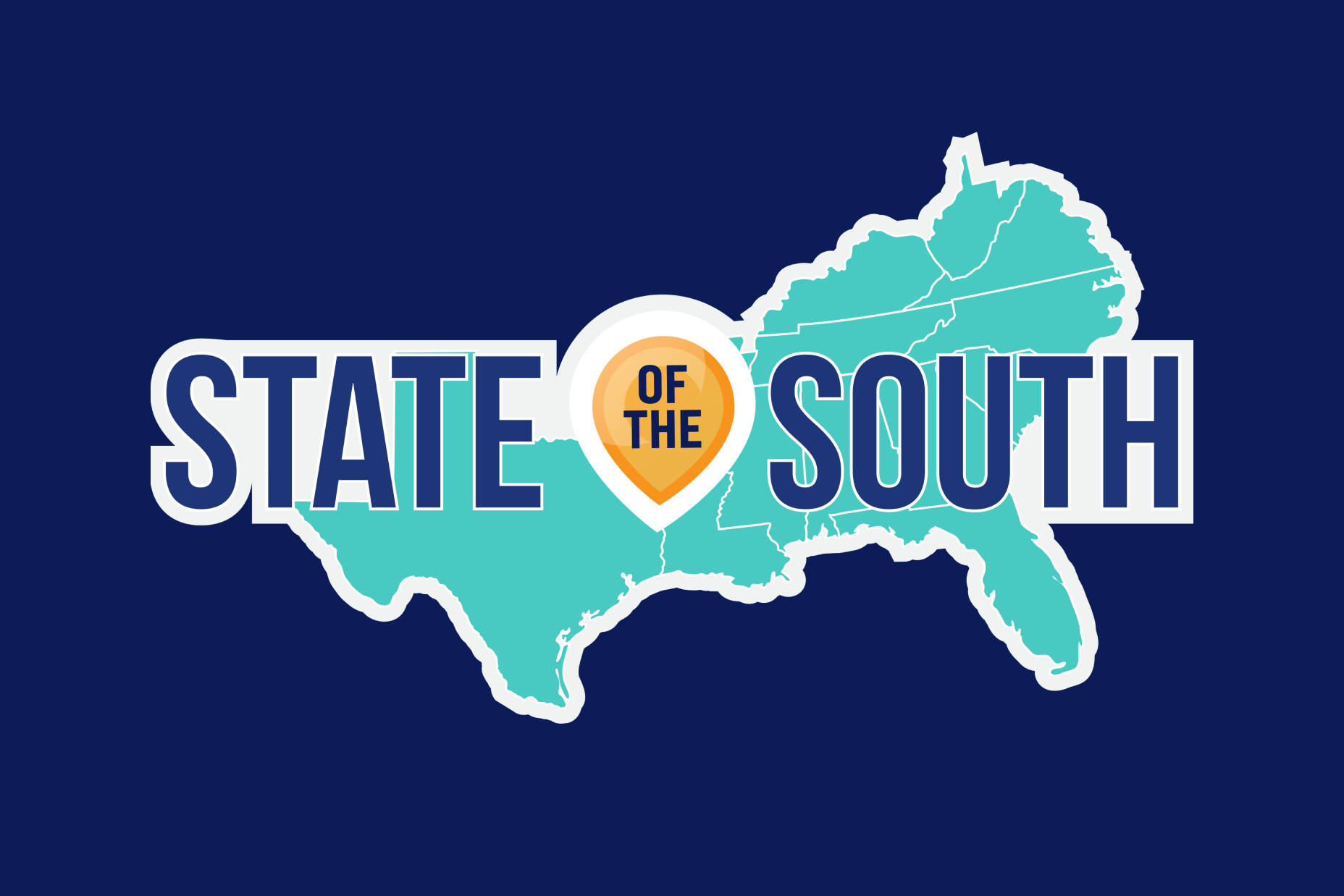Economic Growth through Exploitation
Nov 19, 2024
In early October 2024, MDC convened local community members, nonprofit leaders, philanthropy leaders, and artists at State of the South: Atlanta for conversations around history, legislative advocacy, and systemic inequities in the South. Over three days of discussion, we considered policy opportunities to increase equity in education, improve the social determinants of health, and close the racial wealth gap and the necessary steps to turn those opportunities into reality.
In the next edition of MDC’s State of the South report, to be released in early 2025, we’ll feature insights from partners across the South, including some of the facilitators from our Atlanta convening. In the excerpt below, Gigi Pedraza from Latino Community Fund Georgia explores how the agricultural sector continues to exploit and exclude its largely immigrant and Hispanic or Latino workforce from the protections most American workers enjoy. Be sure to check out the full story in MDC’s State of the South report in early 2025.
“. . . In 2020, there were 352,430 jobs in the agricultural sector in Georgia. Nationally, we know that 78 percent of agricultural workers self-identify as Hispanic. Moreover, we know that about 50 percent of hired agricultural workers do not have authorization to work in the U.S. and that they face numerous chemical, physical and biological threats to their health.i These same workers, who put their lives at risk to put food on our tables, are unable to access or qualify for any medical insurance, employer or state supported or sponsored protections, or consistent services due in part to the American idea of “Agricultural Exceptionalism.”
“Agricultural Exceptionalism” refers to policy carveouts that have created a workforce with fewer federal rights and protections than are extended to most other sectors. How did we get here? During the New Deal Era, President Theodore Roosevelt struck a bargain with Southern Democrats: they would support workers’ rights legislation so long as their farmworkers (predominantly African American workers) were exempt. Thus, the U.S. Congress excluded farmworkers from the National Labor Relations Act of 1935 (NLRA), the main federal law that protects workers who join and organize labor unions, and from the federal minimum wage and overtime protections in the Fair Labor Standards Act (FLSA) of 1938. Farmworkers continued to be excluded from the FLSA until 1966. . .
. . . The agribusiness sector exemplifies how entrenched economic practices have shifted from relying on enslaved labor to exploiting immigrant workers through backbreaking, unethical and abusive employment practices, overwhelmingly affecting communities historically invisible and intentionally divested in. These practices are not only immoral, but they are also unsustainable for business and for the economic systems our lives depend on. . .
. . . In the last few decades, we have become more aware of how food systems and various products impact our health¹, for example, pesticides, genetic modifications, and nutritional quality. However, missing from the conversation are the conditions of the laborers that allow these products to be on our tables – through their work on farms, highways, in janitorial services, transportation, and more. It’s absurd that we scrutinize the quality of what we consume while turning a blind eye to the dignity and safety of those who make it possible. We can and must do better by broadening the conversation to include fair wages, humane conditions, and the well-being of these essential workers who are integral to the very systems we depend on. It is only then that we can build an economy that values human dignity as much as the products we consume. . .”
Read the full article in the upcoming State of the South Report, coming early 2025.
Gilda (Gigi) Pedraza is the Founder & Executive Director and Founder of Latino Community Fund INC. (LCF Georgia) an advocacy and direct service organization with 41 members.
1. Castillo, F., et al. “Environmental health threats to Latino migrant farmworkers,” (2021). Annual Review of Public Health, 42(1), 257-276. https://doi.org/10.1146/annurev-publhealth-012420-105014
2. Galdámez, Misael, et al. “Centering Black Latinidad: A Profile of the U.S. Afro-Latinx Population and Complex Inequalities” (2023). Latino Policy & Politics Institute, University of California at Los Angeles. https://latino.ucla.edu/research/centering-black-latinidad/







